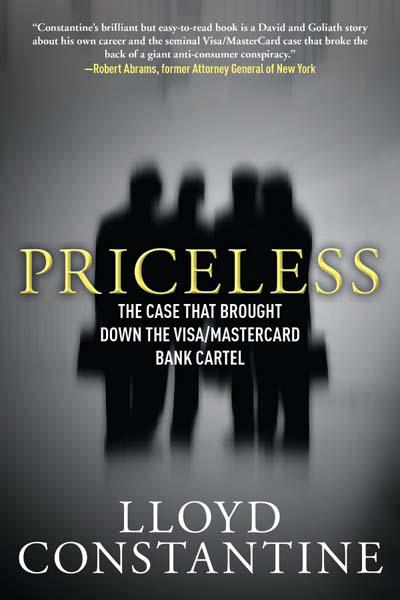Priceless: The Case That Brought Down the Visa/MasterCard Bank Cartel

Author:Lloyd Constantine [Constantine, Lloyd]
Language: eng
Format: epub
Tags: Antitrust, Business & Economics, History, Law, Nonfiction, Retail
ISBN: 9781616083755
Google: PwOSuQAACAAJ
Barnesnoble:
Publisher: Skyhorse Pub.
Published: 2012-04-15T04:00:00+00:00
Double Jeopardy
THE CLASS CERTIFICATION contest involved more work than the entirety of many large and complex commercial cases. But that effort was dwarfed by the battle over the summary judgment motions. Summary judgment is primarily a defendant’s tool in antitrust cases. The defense asks the judge to prevent some or all of the plaintiff’s case from going to trial. My style of litigating, however, is to avoid, whenever possible, going into any battle where only my side has something to lose. I try to turn any contest, including summary judgment, into one involving reciprocal jeopardy. I do this unless my chances of success are inconsequential.
In this case, despite the skepticism of many lawyers on our side, I decided to put the defendants in jeopardy when they moved to throw out our case. We had uncovered so much compelling evidence during the discovery process that I believed that this was the rare antitrust case in which the judge might find for the plaintiff before trial on some of the disputed issues. If Judge Gleeson were to do this, he would instruct the jury that certain facts and issues, which we normally would have the burden to prove, were already proven. Regardless of our chance of success, I wanted the psychological and emotional lift that going on the offensive would give our team. The size of the discovery record and the ferocity of defendants’ opposition to the class motion made me certain that the summary judgment proceedings would involve an enormous effort. I didn’t want my team to work that hard with the only possible outcomes being that all or part of our case would be dismissed or, at best, we would stay right where we were. We needed to have something big to win and had to give the defendants something big to lose.
The hardest part of the summary judgment contest was that it came directly after, and actually overlapped, three other crucial and withering battles. These were the class motion, the final weeks of fact discovery, and the short, in tense period of expert discovery. I argued the class motion on February 4, 2000. The class was certified on February 22, 2000. From February 1 through March 27, 2000, which included only forty days when depositions could be taken, the parties took exactly 200 depositions. As soon as fact discovery ended, Judge Gleeson required the expert reports and expert depositions to be completed by April 4, 2000. During a forty-three day window, twenty-one experts filed reports and/or rebuttal reports and were deposed for as long as four days each.
We informed Judge Gleeson that we would be moving for summary judgment when the defendants moved. We requested that the briefs for both sides be filed on the same dates, making it necessary for both sides to attack and defend simultaneously and intensifying the double jeopardy dynamic. Judge Gleeson obliged, initially requiring the opening briefs on June 2, 2000, opposition briefs on June 30, 2000, reply briefs on July 17, 2000, and oral argument on August 4, 2000.
Download
This site does not store any files on its server. We only index and link to content provided by other sites. Please contact the content providers to delete copyright contents if any and email us, we'll remove relevant links or contents immediately.
The Social Psychology of Inequality by Unknown(3014)
The Plant Paradox by Dr. Steven R. Gundry M.D(2608)
The Writing on the Wall by Anselm Jappe(2039)
Working for Yourself by J.D. (Nolo) Stephen Fishman(1862)
Get What's Yours for Medicare by Philip Moeller(1667)
Every Landlord's Legal Guide by Janet Portman & Stewart Marcia & Ralph Warner(1663)
The First 20 Hours: How to Learn Anything ... Fast by Kaufman Josh(1655)
ADHD on Trial by Michael Gordon(1572)
Decisive by Chip Heath(1560)
Working for Yourself by Stephen Fishman J.D. (Nolo)(1522)
Drafting Contracts: How and Why Lawyers Do What They Do, Second Edition by Stark Tina L(1484)
The Lord of the Rings: The Fellowship of the Ring, the Two Towers, the Return of the King by J. R. R. Tolkien(1430)
A Practical Guide to International Arbitration in London by Hilary Heilbron(1426)
Restitution by Restitution(1424)
Intellectual Property Strategy by John Palfrey(1419)
The Economist Aug 8th 2015 by The Economist(1414)
The Economist Aug 29th 2015 by The Economist(1379)
Collusion by Luke Harding(1314)
Persuasion by Owner(1291)
